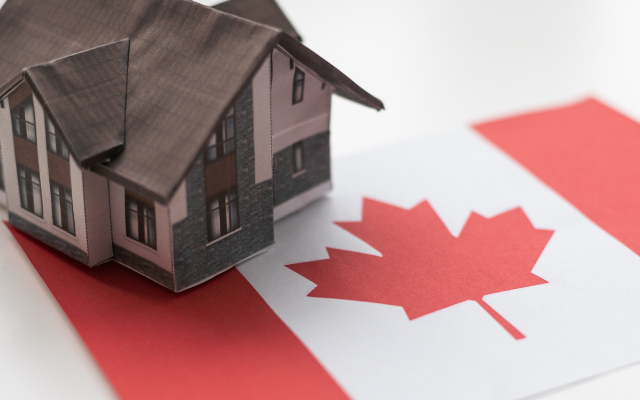
Global Properties

Are you a foreigner struggling to understand if you can buy a house in Canada amidst changing property laws?
With strict regulations like the Prohibition on the Purchase of Residential Property by Non-Canadians Act, it’s easy to feel overwhelmed by the complexity and confusion.
This guide explains the latest laws, exemptions, and step-by-step details to help you confidently navigate Canada’s real estate market as a foreign buyer.

The Prohibition on the Purchase of Residential Property by Non-Canadians Act, effective January 1, 2023, restricts foreign nationals and corporations controlled by non-Canadians from purchasing residential properties in Canada until January 1, 2027.
According to the Government of Canada, the aim is to prioritize housing availability for Canadian citizens and permanent residents to tackle the country's housing affordability crisis.
According to the Act, non-Canadians are defined as:
| Category | Description |
| Individuals | Not Canadian citizens, permanent residents, or registered under the Indian Act |
| Corporations | Companies incorporated outside Canada or controlled by non-Canadians |
| Indirect Ownership | Entities controlled by non-Canadians, with ownership interests of 3% or more |
Example: This restriction applies if a foreign corporation owns more than 3% of a Canadian real estate company's shares.
The Act is not an absolute ban. Several groups and circumstances allow non-Canadians to buy property in Canada. Here’s a detailed look at these exceptions:
Foreigners with valid work permits or study permits can purchase residential property under certain conditions:
| Work Permit Holders | Study Permit Holders |
| Must have at least 183 days of validity remaining on their permit | Must be enrolled in an authorized program for 5 years preceding the purchase |
| Must intend to occupy the property while working | Can purchase property worth up to $500,000 |
| Can only own one residential property | Cannot have bought more than one property |
According to the Canadian government’s amendments in 2023, these exemptions aim to help “newcomers put down roots” in Canada, as Ahmed Hussen, Minister of Housing and Diversity and Inclusion, mentioned.
If you’re married to or in a common-law relationship with a Canadian citizen, you are exempt from the ban and can purchase property together.
Refugees and protected persons, as defined by the Immigration and Refugee Protection Act, are exempt from the prohibition and can own residential property in Canada.
The Act mainly targets properties in Census Metropolitan Areas (CMAs) and Census Agglomerations (CAs).
Property outside these areas, such as rural homes, cottages, or lakehouses, are still available for foreign purchase.
| Category | Population Requirement |
| Census Metropolitan Area (CMA) | At least 100,000 people, with 50,000 in the core |
| Census Agglomeration (CA) | A core population of at least 10,000 people |
Example: A foreigner can purchase a home in a rural area like Prince Edward Island, which falls outside these defined zones.

The Act defines residential property as:
| Property Type | Affected | Exempt |
| Detached house | Yes | No |
| Semi-detached house | Yes | No |
| 4+ unit buildings | No | Yes |
| Recreational properties | No | Yes |
While the ban restricts certain buyers, eligible non-Canadians must fulfill specific requirements:

| Step | Description |
| 1 | Research Eligibility: Determine if you fall under any exemptions. |
| 2 | Find a Canadian Real Estate Agent: Work with a licensed agent experienced with non-resident purchases. |
| 3 | Secure Financing: Obtain a mortgage pre-approval from a Canadian bank (usually requires a 35% down payment). |
| 4 | Make an Offer: Work with your agent to submit an offer on your desired property. |
| 5 | Hire a Real Estate Lawyer: Ensure legal compliance with the Prohibition Act. |
| 6 | Complete the Purchase: Transfer funds, sign documents, and finalize the deal. |

Foreigners buying property in Canada are subject to additional taxes, including:
| Tax Type | Rate/Details |
| Non-Resident Speculation Tax (NRST) | 25% on the purchase price in Ontario, 20% in British Columbia (varies by province) |
| Goods and Services Tax (GST) | 5% on new construction properties |
| Property Transfer Tax (PTT) | 1% on the first $200,000, 2% up to $2 million, and 3% above $2 million (varies by province) |
Note: Taxes are subject to change, so consult an expert for further information.
| Criteria | Canadian Citizens/Permanent Residents | Foreign Buyers |
| Eligibility | No restrictions | Must meet exemption criteria |
| Down Payment | Minimum 5% | Minimum 35% |
| Property Transfer Tax | Standard rates | Additional NRST (varies by province) |
| Mortgage Options | More flexible | Limited options with stricter requirements |
Note: Taxes and payment are subject to change, so consult an expert for further information.
Consider John, a UK citizen with a valid work permit, who is interested in purchasing a condo in Vancouver.
John can proceed with his purchase since he meets the exemption criteria (having over 183 days left on his work permit and not owning any other property in Canada).
However, he must pay the 20% Non-Resident Speculation Tax (NRST) and ensure his total down payment is at least 35% of the condo’s value.
According to recent data from the Canadian Mortgage and Housing Corporation (CMHC), foreign buyers account for less than 6% of housing purchases in major cities.
Despite the ban, housing affordability remains challenging due to other factors, such as supply shortages and rising interest rates.
Yes, but with restrictions under the Prohibition on the Purchase of Residential Property by Non-Canadians Act until 2027. Some exemptions apply.
Requirements vary but typically include a 35% down payment, valid work/study permits, and adherence to tax obligations.
Yes, if they have spent 244 days/year in Canada for the last five years and the property doesn’t exceed $500,000.
Yes, but you need a larger down payment (35%) and must meet specific bank requirements.
Non-residents pay the Non-Resident Speculation Tax (NRST), Property Transfer Tax, and Goods and Services Tax (GST) on new builds.
Yes, but they must adhere to the Act's restrictions, and investment properties in non-CMA/CA areas are more accessible.
No visa is needed to buy property, but you must meet eligibility criteria and follow legal procedures.

While the Prohibition Act has made it more challenging for foreigners to buy property in Canada, exemptions provide opportunities for eligible non-residents.
Understanding the laws, tax implications, and eligibility criteria can still help you navigate the Canadian real estate market.
Whether you're an international student, temporary worker, or investor, careful planning and compliance can help you achieve your goal of owning property in Canada.
Ready to take the next step toward owning your dream home in Canada? Don't let regulations hold you back! Contact our expert real estate team today to discover your options, navigate the process smoothly, and turn your Canadian property dreams into reality. Start your journey now!